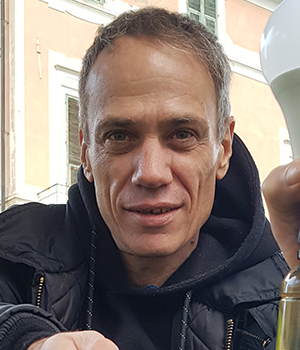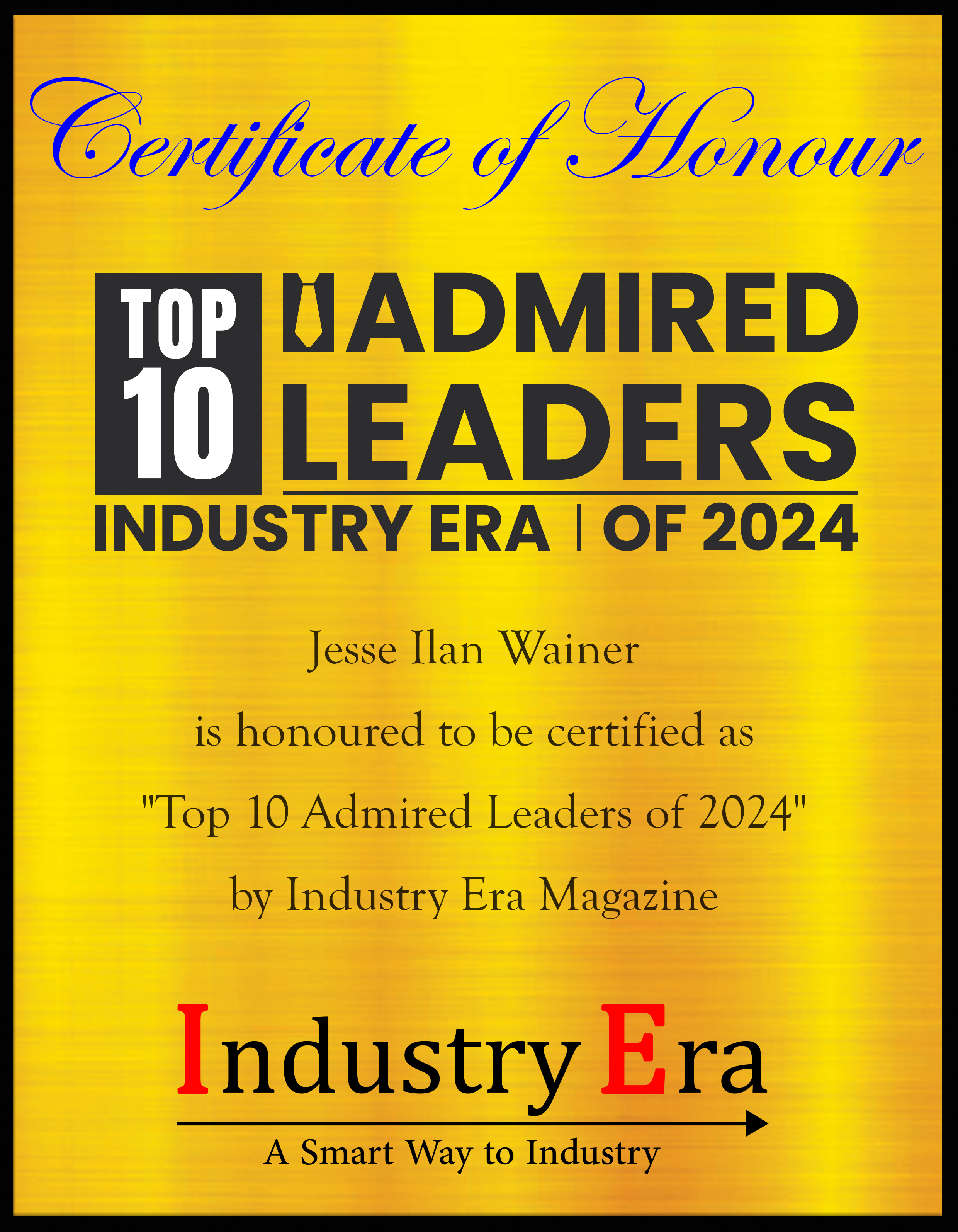
Jesse Ilan Wainer
Chief Executive Officer
Rainforest Reliance Non-Profit

Consider ground breaking ideas
Rainforest Reliance Non-Profit is an organization that focuses on landscape restoration, reforestation, agriculture, renewable energy, and food security. They prioritize indigenous peoples' involvement and representation and aim to combat global warming while achieving all 17 Sustainable Development Goals. The CEO, Jesse Ilan Wainer, leads the organization, which is unique in that it holds a patent for a protective plant variety in the form of a Castor Tree called WAINER/J2. Their Castor Tree is a long-lasting, highly productive, and drought-resistant tree, and a wide range of products and applications can utilize its vegetable oil. The organization and the European Biomass Industry after 3-years of trials in Europe believes that this oil has the potential to completely replace fossil fuels at a lower cost.
Jesse affirms that most people were previously unaware of castor oil, but now they recognize it as a valuable resource. Technology widely utilizes castor in the production of cell phones, computer screens, chips, and the special plastic coating on fiber-optic internet cables. Castor oil finds its way into many everyday items, such as security glass in cars and hygiene products.
Initially, their goal was to revive the abandoned castor industry in Central America by developing productive castor strains for biodiesel and renewable energy. However, after successfully creating new high-yielding Castor varieties, they realized the enormous potential they had stumbled upon. This realization inspired them to envision a new world centered around a sustainable green Castor economy. Their expanded vision was driven by a newfound understanding of their accidental discovery's profound impact and transformative power, which could reshape the future and the planet.
Their unique business model and intellectual property are crucial for bringing about economic and social improvements such as schools, universities and hospitals in impoverished communities in the developing world. By offering opportunities for drastically increased wages and sustainable practices, they are able to combat poverty and contribute to reversing global warming. Their independence from the market allows them to pay their independent contracted participating families higher incomes and produce raw materials at a lower cost than traditional methods.
For Jesse, being a visionary and innovative thinker can be challenging when trying to convey your ideas to others, especially if they are abstract and overwhelming. Many people may view your ideas as impractical and impossible to implement. True entrepreneurs, however, recognize that overcoming adversity requires time and persistence. By demonstrating your ideas with physical solutions, you can help others understand and believe in your vision. It is important for entrepreneurs to not be afraid to lead the way and to be willing to transform abstract concepts into tangible realities, as they say “seeing is believing.” Not all business ventures or inventions will succeed, but it is important to learn from failures and keep trying. Hard work, persistence, and endurance are keys to overcoming adversity, he adds.
In order to ensure the organization's continuity in exploring new ideas and effectively implementing them, one must take charge and establish clear goals. To align and integrate goals, communication is essential. If you don't communicate and share your thoughts, you cannot expect others to hear or understand you. Therefore, communication at all levels within the organization is crucial for successfully uniting and achieving goals.
Communication, inspiration, and teamwork are essential for success, along with a willingness to take risks and ask for help when needed. A leader must set an example by actively participating in the task and demonstrating its execution to others. You can compare this to planning a trip by outlining your route in advance. Jesse's father emphasized to him the importance of loving his work, being committed, and trusting that success will come as a result.
Beyond that, it is important to make team members feel valued and appreciated. Viewing oneself as the captain of a sports team and recognizing the importance of each member's role can achieve this. For instance, “Drop the ball and let the team down." Understanding collective objectives and individual strengths, setting goals, and assigning responsibilities can unite a team, fostering a sense of unity and camaraderie.
When it comes to excellence, as an entrepreneur with a limited budget, it can be hard to stay up-to-date or compete on an even keel, so imagination, initiative, and determination are needed to give yourself a fighting chance. Similar to chess, you can easily track your competitors' plans and implementations by monitoring and evaluating their strategic moves to determine their strategies, strengths, and weaknesses. To outperform your opponent, you must identify your skills and shortcomings and find ways to maximize your strengths while minimizing your flaws. Charging is the best way forward, and having a new weapon or tool can help. To be competitive, one must be innovative.
Working with their team of international scientists, they will be establishing their R&D laboratory, where they will explore advances in both pharmaceutical and medical fields. For instance, they will investigate the use of Ricin in Nano/micro doses as an alternative natural form of chemotherapy for certain cancers, as well as the application of bee propolis, pollen, and castor flower honey in the recovery treatment of cancer chemotherapy patients. Additionally, they will explore the development of Nano-membranes and other innovations in both medical and biodegradable plastics, to name a few.
On the pivot of a new dawn and expansion, they are pioneering a sustainable bio-economy with revolutionary restoration practices using their Intellectual Property, An example is their theoretical ability to triple Brazil's oil and meat production or Central and Tropical Africa to utilize its potential to produce half or more of the world's food and energy through innovative, cost-effective, renewable, and sustainable regenerative practices.
They represent thousands of rural and indigenous families who live in extreme poverty as official legal ambassadors to the U.N., by supporting their initiatives one empowers families and communities to become self-sustainable by way of protecting biodiversity and restoring our rainforests. In total 30,000 land owning families are represented amounting to roughly 150,000 people that have the potential to produce over 3-Billion Liters Bio-fuels per year, 40% of the world’s coffee and 20% of the world’s chocolate demand, all via restoring 1-million hectares of destroyed terrain inside their indigenous reserves.
They are currently negotiating to secure private and corporate funding, which will enable them to establish production facilities in Europe, Africa, Central and South America. These facilities will produce renewable energy in the form of road and aviation biofuels, biogas, and a range of hygiene and pharmaceutical products. Additionally, they plan to license their intellectual property to major players in both the grain and energy sectors and are open to proposals.

Company
Rainforest Reliance Non-Profit
Management
Jesse Ilan Wainer
Chief Executive Officer
Rainforest Reliance Non-Profit
Description
We at Rainforest Reliance Non-Profit Organization strive to incorporate a long term sustainability strategy that focuses on not just tree planting and land restoration but takes into account all aspects of biodiversity, conservation and preservation, whilst at the same time tackling ALL 17 Sustainable Development Goals.

